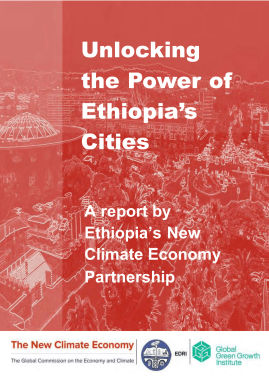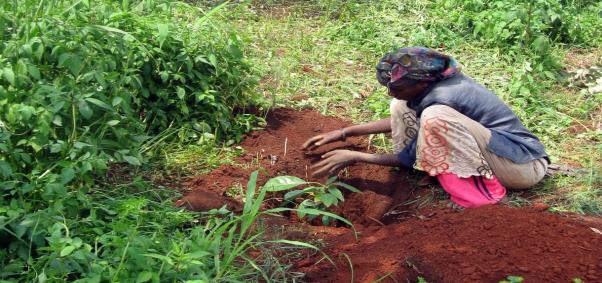NCE has worked closely with the government of Ethiopia's ministries since 2015. NCE has worked with the Ministry of Planning and Development and the Environmental Protection Authority, as well as with key sector ministries such as the Ministry of Finance and the Ministry of Water and Energy (MoWE) to support the design, alignment, and implementation of the government’s updated Nationally Determined Contribution (NDC), overarching 10 Year Development Plan, and the 2050 Long-Term Low Emission Development Strategy. NCE continues to support the government of Ethiopia’s efforts to plan and achieve a resilient, low-carbon and green economy under WRI's National Climate Action team. This work is in line with the Climate Resilient Green Economy (CRGE) Facility to identify climate action and development pathways for advancing Ethiopia’s ambitious climate and development agenda to 2030, as outlined by the government's updated NDC in 2021, and in the long-term strategy towards decarbonization by 2050.
NCE, along with WRI’s Energy Access and Water programmes, are in the process of finalizing a WRI umbrella Memorandum of Understanding with MoWE which will provide a clear framework for collaboration going forward between MoWE and WRI. NCE is also collaborating with other relevant WRI projects and programs that are working with the Ethiopian government, including Forest Restoration and Cities as well as external collaboration with the Global Green Growth Institute (GGGI) and the World Bank. The success of these relationships and support to the ministries has prompted additional requests to provide analytical inputs for Ethiopia's forthcoming Long-Term Low Emission Development Strategy (LT-LEDS), including adaptation and mitigation policies, and the development of alternative pathways to realize net-zero or clean energy by 2050. The aim of the LT-LEDS exercise is to ensure alignment and synergy of energy policies with the overall development ambitions and other sector policies of the government. In collaboration with government stakeholders, NCE developed the Ethiopia Green Economy Model (GEM) an integrated assessment, system dynamics modelling approach to support both NDC revision and long-term strategy planning. Efforts to support the government of Ethiopia have included expanding and applying advanced policy-relevant GEM modelling scenario analysis; building capacity in sector, ministries, and agencies to co-produce modelling and policy scenario analysis; and widely disseminating initial project findings through targeted communications and engagement.






